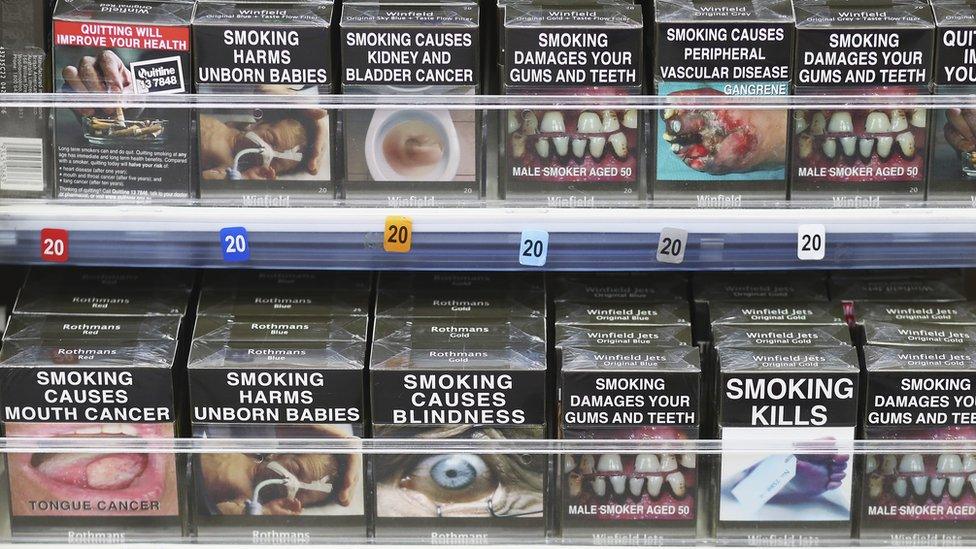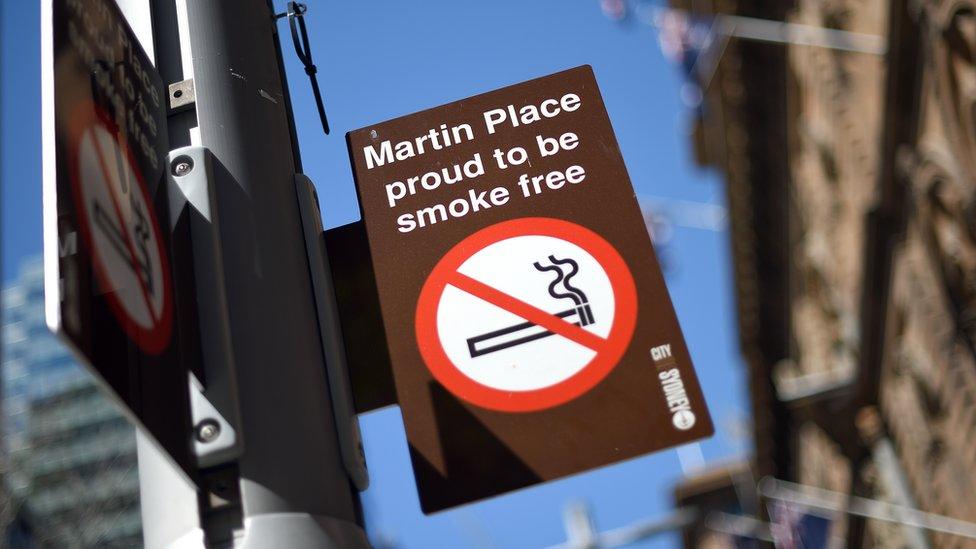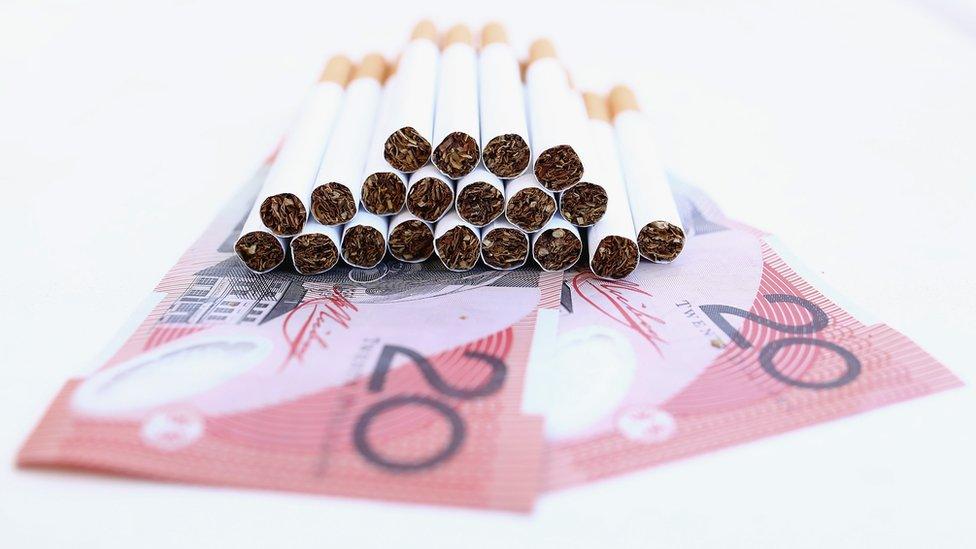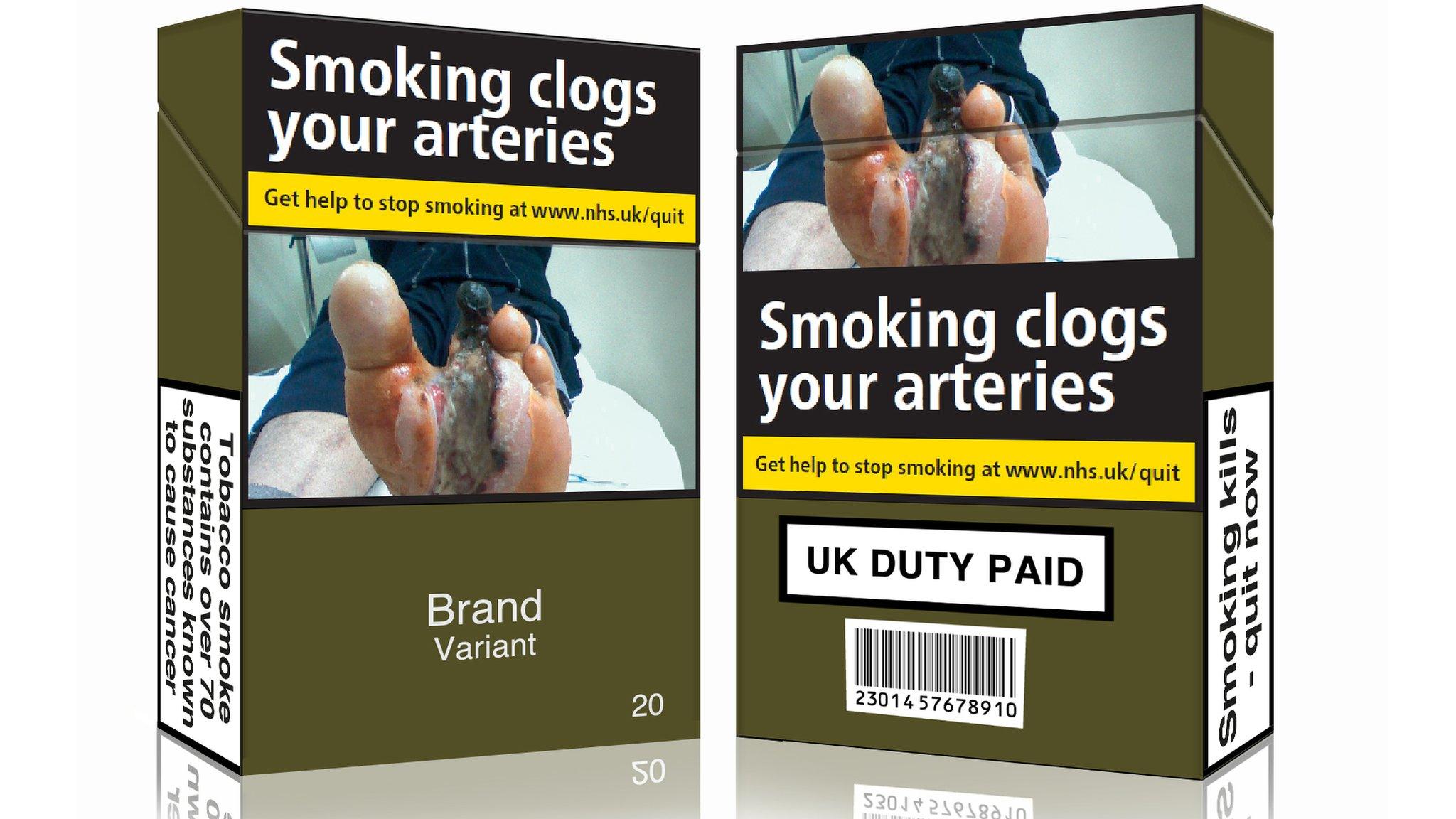Tobacco company flags appeal over plain packaging
- Published

Australia introduced world-first laws on cigarette plain packaging
British American Tobacco has suggested an appeal is likely amid reports that the World Trade Organization (WTO) has upheld landmark Australian laws on cigarette plain packaging.
A leaked draft of the WTO ruling found that packaging constituted a legitimate public health measure, Bloomberg said.
The agency quoted two sources familiar with an interim report. The final report is expected to come in July.
If confirmed, the decision would be major blow to the tobacco industry.
It would effectively allow other nations to introduce plain packaging legislation without fear of violating trade laws.
Under the new law, brand names will appear in the same position, font, size and colour on packets
British American Tobacco said it would wait for the final report before making detailed comment.
"However, as there is a high likelihood of an appeal by some or all of the parties, it is important to note that when the panel report is publicly released, it will not be the final word on whether plain packaging is consistent with international law," a company spokesperson said.
The WTO confirmed an "interim report" was circulated to those involved in the dispute, but said it remained confidential.
What are Australia's laws?
In 2012, the nation introduced world-first plain packaging with a uniform, drab colour across all brands except for health warnings.
Any brand names are in small, non-distinctive lettering.
The idea is that this lessens the attractiveness of smoking and experts, including from World Health Organisation, have said it is an effective measure to curb smoking rates.

Australia has strong laws on smoke-free zones
Britain, France and Hungary have since announced plans to follow Australia's lead.
Around six million deaths each year are linked to smoking.
Why were the laws disputed?
Four nations - Cuba, Honduras, Dominican Republic and Indonesia - argued to the WTO that the rules constituted an illegal barrier to trade.
The laws were also opposed by tobacco companies, who argued their trademarks were being violated.
Australia has complained its opponents are dragging out the WTO investigation.
What has been the reaction?
On Friday, Nicola Roxon, the former health minister who introduced the laws, said she was "absolutely thrilled".
"It is consistent with what we have always known - that countries can take action in public health areas, especially battling tobacco, that help protect their citizens," she told the BBC in a statement.
"This decision will give a green light to other countries who... may have been frightened by threats of legal action and the WTO dispute that has dragged on for many years."
In addition to British American Tobacco's statement, other tobacco companies have been critical about the leaking of the report.
"Such breaches completely undermine the integrity of the process, which has not yet run its full course," a Japan Tobacco spokeswoman told Reuters.
Before the leak, Alison Cooper, the CEO of tobacco company Imperial Brands, she did not expect a "significant domino effect in terms of different markets adopting it".
What happens next?
Those involved in the dispute can submit comments on the document before the final report is handed down, most likely in July.
In addition to emboldening other nations to introduce similar laws on tobacco, the decision - if confirmed- could also have wider implications for alcohol and junk food.
A spokesman for Australian Health Minister Greg Hunt told the BBC that the government would not comment until the final report was handed down.
- Published30 January 2017

- Published31 May 2016
